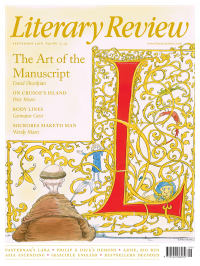Vybarr Cregan-Reid
Pages for the Ages
On a recent trip to Paris, researching my book Footnotes, I regularly stepped out for a run. My route invariably took me past the Panthéon, the large, neoclassical domed mausoleum some eighty metres in height. Despite many visits over the years, my association with that building was in fact first forged when, at the age of twenty, I read about how Léon Foucault in 1851 put its dome to experimental use by swinging a pendulum from it to demonstrate the rotation of the earth. The explanation of this experiment appeared in the opening pages of a novel that I was then under the spell of: Foucault’s Pendulum by Umberto Eco.
Unlike the tight geographical containment that characterises Eco’s first book, The Name of the Rose, Foucault’s Pendulum is a great sprawling adventure that leaps as easily across continents as it does through periods of history. Its central characters are so obsessed with conspiracy theories that they invent one

Sign Up to our newsletter
Receive free articles, highlights from the archive, news, details of prizes, and much more.@Lit_Review
Follow Literary Review on Twitter
Twitter Feed
Though Jean-Michel Basquiat was a sensation in his lifetime, it was thirty years after his death that one of his pieces fetched a record price of $110.5 million.
Stephen Smith explores the artist's starry afterlife.
Stephen Smith - Paint Fast, Die Young
Stephen Smith: Paint Fast, Die Young - Jean-Michel Basquiat: The Making of an Icon by Doug Woodham
literaryreview.co.uk
15th-century news transmission was a slow business, reliant on horses and ships. As the centuries passed, though, mass newspapers and faster transport sped things up.
John Adamson examines how this evolution changed Europe.
John Adamson - Hold the Front Page
John Adamson: Hold the Front Page - The Great Exchange: Making the News in Early Modern Europe by Joad Raymond Wren
literaryreview.co.uk
"Every page of "Killing the Dead" bursts with fresh insights and deliciously gory details. And, like all the best vampires, it’ll come back to haunt you long after you think you’re done."
✍️My review of John Blair's new book for @Lit_Review
Alexander Lee - Dead Men Walking
Alexander Lee: Dead Men Walking - Killing the Dead: Vampire Epidemics from Mesopotamia to the New World by John Blair
literaryreview.co.uk